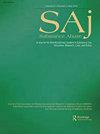新泽西州多物质使用潜在类别成员:与先前过量服用、先前急诊科同伴康复参与和阿片类药物过量恢复计划参与者的心理健康诊断的关系
IF 2.4
3区 医学
Q2 SUBSTANCE ABUSE
引用次数: 4
摘要
背景:流行病学研究表明,在美国滥用阿片类药物的人群中,多物质使用率较高。多种物质的使用也与急诊科在干预服务中的多次参与有关。作为阿片类药物康复干预计划的一部分,在使用阿片类或参与ED环境的个体中,对多物质的使用知之甚少。研究阿片类药物使用者中新出现的多物质使用模式,可能有助于围绕发展药物市场和社会规范制定政策和实践。本研究的目的是了解新泽西州ED阿片类药物过量恢复计划(OORP)参与者中表现出不同多物质使用模式的亚群。方法:本研究使用潜在类别分析(LCA;N)调查了新泽西州OORP参与者的多物质使用模式 = 1690年;70.2%为男性;84.7%为非西班牙裔白人;平均值=35.72 ± 11.95)。基于临床相关指标的多项式逻辑回归分析检查了潜在类别(LC)成员关系。结果:确定了五个潜在类别(模型拟合:L2=33.76,BIC=4482.69,AIC=4245.01,bootstrap L2p值=0.27;标准R2值0.85)。多项逻辑回归分析表明,先前OORP参与几率最大的亚组与海洛因和多物质使用亚组的参与者有关。结论:研究美国处方阿片类药物使用和多物质使用人群的异质性至关重要。这项研究在确定多物质使用LC成员群体以及参与阿片类药物康复计划的患者与临床相关指标的相关性方面做出了重要贡献。研究结果有助于了解更大流行病的性质以及如何应对。本文章由计算机程序翻译,如有差异,请以英文原文为准。
Polysubstance Use Latent Class Membership in New Jersey: Association with Prior Overdoses, Prior Emergency Department Peer Recovery Engagement, and Mental Health Diagnosis among Participants in An Opioid Overdose Recovery Program
Background: Epidemiological research has indicated higher polysubstance use among individuals who misuse opioids in the United States. Polysubstance use is also associated with multiple emergency department (ED) engagements in intervention services. Less is known about polysubstance use among individuals who use opioids or were engaged in an ED setting as part of an opioid recovery intervention program. Examining emerging patterns of polysubstance use among individuals who use opioids may help shape policy and practice around developing drug markets and social norms. The objective of this study was to understand subpopulations who demonstrated distinct patterns of polysubstance use among participants in an ED Opioid Overdose Recovery Program (OORP) in New Jersey. Method: This study investigated patterns of polysubstance use among participants in a New Jersey OORP using latent class analysis (LCA; N = 1690; 70.2% male; 84.7% White non-Hispanic; meanage = 35.72 ± 11.95). Multinomial logistic regression analyses examined latent class (LC) membership based on clinically relevant indicators. Results: Five latent classes were identified (Model fit: L2 = 33.76, BIC = 4482.69, AIC = 4245.01, and the bootstrap L2p-value =0.27; standard R2 value of 0.85). Multinomial logistic regression analyses showed that subgroups with the greatest odds of prior OORP engagement related to those participants in subgroups with heroin and polysubstance use. Conclusion: It is critical to examine the heterogeneity among people engaging in prescription opioid use and polysubstance use in the United States. This study represents an important contribution in identifying polysubstance use LC membership groups and associations with clinically relevant indicators among those engaged in an opioid recovery program. Results can be valuable in understanding the nature of the larger epidemic and how it can be addressed.
求助全文
通过发布文献求助,成功后即可免费获取论文全文。
去求助
来源期刊

Substance abuse
SUBSTANCE ABUSE-
CiteScore
5.90
自引率
2.90%
发文量
88
审稿时长
>12 weeks
期刊介绍:
Now in its 4th decade of publication, Substance Abuse journal is a peer-reviewed journal that serves as the official publication of Association for Medical Education and Research in Substance Abuse (AMERSA) in association with The International Society of Addiction Medicine (ISAM) and the International Coalition for Addiction Studies in Education (INCASE). Substance Abuse journal offers wide-ranging coverage for healthcare professionals, addiction specialists and others engaged in research, education, clinical care, and service delivery and evaluation. It features articles on a variety of topics, including:
Interdisciplinary addiction research, education, and treatment
Clinical trial, epidemiology, health services, and translation addiction research
Implementation science related to addiction
Innovations and subsequent outcomes in addiction education
Addiction policy and opinion
International addiction topics
Clinical care regarding addictions.
 求助内容:
求助内容: 应助结果提醒方式:
应助结果提醒方式:


